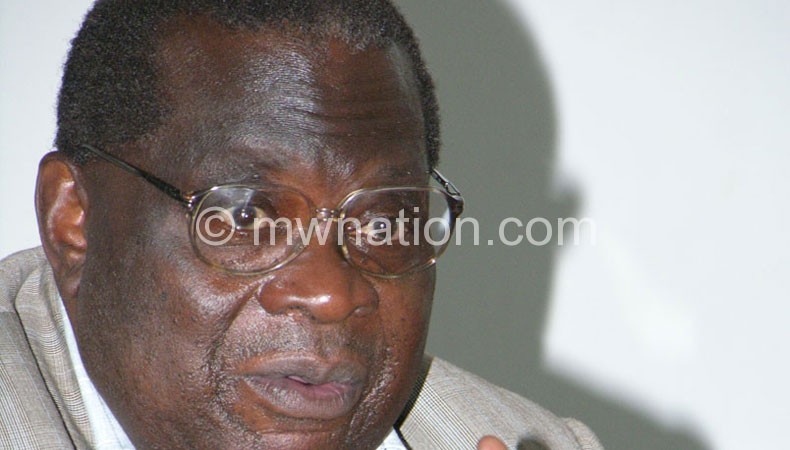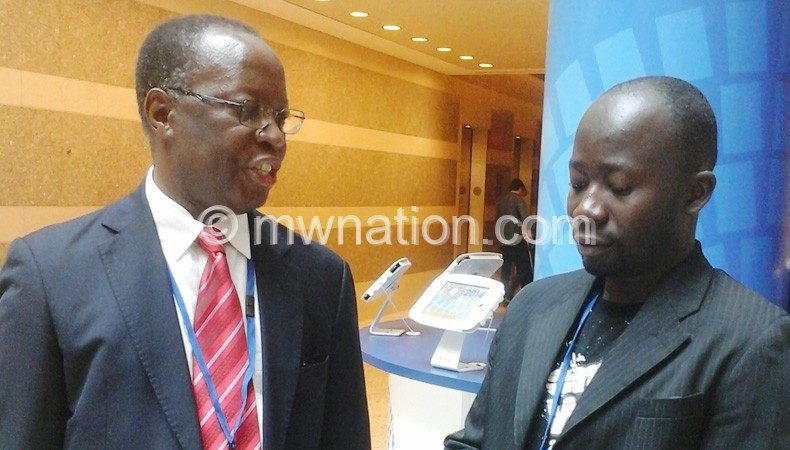2014: The year when kwacha depreciation wreaked havoc
It shall remain an indisputable fact that a better part of 2014 was eaten into by a sudden but dreadful movement of the local currency, kwacha. This was a rare phenomenon as it was since the exchange rate trajectory was stable at the onset of the year in January.
Such substantial currency depreciation towered as one key obstacle to doing businesses during the year apart from interest rates volatility and continued suspension of budget support.

True to warning shots by many economic commentators during the course of the year, the fall in the value of the kwacha, especially against the dollar wreaked havoc as most businesses were panting with rage over foreign exchange losses and their balance sheets suffered on account their foreign debt repayment obligation.
As if that was not enough, the ceding of the local currency also did more harm to an ordinary consumer as it exacerbated inflationary pressures, sending prices of basic goods and services over the roof. In part, the considerable weak exchange rate was due to seasonal factors as the economy entered the “lean season” where export-related foreign exchange receipts are low, compounded by ongoing shortfalls in budget support and low earnings from tobacco-Malawi’s main foreign exchange earner.
—Currency movement in perspective—
Published statistics by Reserve Bank of Malawi (RBM) are clear on kwacha expedition in 2014.
In January 2014, the kwacha to dollar mid-rate was K435.47, before appreciating marginally to K426.66 in February, K416.29 (March) and K403.49 (April). As the tobacco market cast its doors open, the seasonal impact of tobacco dollars that trickled into the economy was manifested, with the currency further appreciating before stabilising at K398 against the dollar mid-year.

This was the trend: May (K398.19), June (K397.73), July (K398.66) and August (K398.66).
However, as September drifted in, the kwacha made a dramatic u-turn, sharply falling to K402.05 (September mid-rate), before worsening to K439.67 in October and K490 in November.
But on the parallel foreign exchange market, however, the situation was even worse than usual as the currency hit an-all-time low of K520, representing a loss of about 25 percent within a space of two months. It was a clear sign of a strong imbalance of what the country generates in the form of foreign exchange and what it uses for imports. Some local economists simply put it that two much kwacha currency in circulation was chasing few dollars on the market; hence, the dramatic nose-diving in the value of the local unit.
—Business cry foul—
Reacting to the movement of the kwacha against other foreign reference currencies, Malawi Confederation of Chambers of Commerce and Industry (MCCCI) chief executive officer Chancellor Kaferapanjira blamed panic buying of dollars on the market as a major driving force of the kwacha slump.
“The panic in the exchange rate market has been principally a result of expectations that foreign exchange is going to disappear soon as the donors are unlikely to release direct budget support to government,” he said.
Kaferapanjira said their members in the financial sector informed the chamber that if it were not for panic, the kwacha would easily have held firm.
Second hand motor vehicle dealers were also not speared from the wrath of the kwacha fall. Most dealers interviewed this week in Lilongwe lamented that unlike at the beginning of the year, they are now required to raise enough kwacha to buy dollars on the market for them to keep their businesses floating.
“It is very tough my brother. I used to spend few kwacha to enable me import small vehicles from Japan earlier this year but now I am forced to raise more Kwacha for me to bring in similar vehicles. It is not sustainable,” said a dealer who did not want to be named.
In economics, a depreciating exchange rate makes imports more expensive and this leads to higher cost of imports. Even small businesses felt the pinch of the sharp weakening of the kwacha.
Small and Medium Enterprises Association (Smea) president James Chiutsi said businesses experienced small growth on the same.
“SMEs import small machinery and materials and due to the fall in the value of the kwacha, we are failing to buy these for us to grow our businesses,” he said.
Transporters and all motorists too were also indirectly hit through the increase in petroleum products occasioned by the loss in the value of the kwacha.
Pump price for petrol was increased from K796.20 to K856.70 per litre, diesel is now selling at K865.90 from K805.50 per litre on account of exchange rate movement, among other factors.
—Authorities see hope—
RBM Governor Charles Chuka downplayed the buzz over the sudden weakening of the local currency, especially the dollar. He said there was no need to worry and panic as the country still has very few sources of exports to the international market.
Chuka said the current flexibility of the exchange rate is helping the central bank to balance the demand and supply of foreign exchange and help the bank hold enough reserves.
His fiscal policy counterpart Goodall Gondwe, Minister of Finance, Economic Planning and Development told Business News last week on the sidelines of the International Monetary Fund (IMF) press conference in Lilongwe that already, the kwacha had began to show signs of stability.
“Do not forget that Tanzania was in a situation like ours. Our inflation is at 23.7 percent but theirs was more than 100 percent. The depreciation of our currency is about 15 percent but theirs was more than 100 percent within a short period of time.
“But Tanzania did the right thing with support of the IMF and now they have low inflation rate and are enjoying high growth rates,” he explained.
Both Chuka and Gondwe are optimistic that the local unit will continue to stabilise on account of tight monetary policy implementation and expected resumption of budget support.
But as the two are keeping their fingers crossed, economic experts such as those at Nico Asset Managers Limited believe overall, the kwacha will depreciate in the medium to long-term due to trade imbalances, current account deficits, low forex reserves and significant levels of imports.





